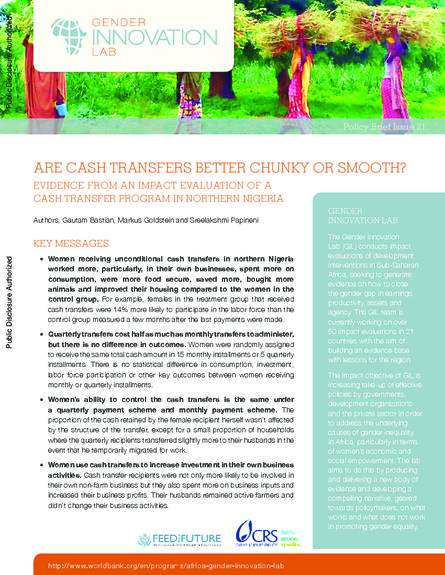
KEY MESSAGES • Women receiving unconditional cash transfers in northern Nigeria worked more, particularly, in their own businesses, spent more on consumption, were more food secure, saved more, bought more animals and improved their housing compared to the women in the control group. For example, females in the treatment group that received cash transfers were 14% more likely to participate in the labor force than the control group measured a few months after the last payments were made. • Quarterly transfers cost half as much as monthly transfers to administer, but there is no difference in outcomes. Women were randomly assigned to receive the same total cash amount in 15 monthly installments or 5 quarterly installments. There is no statistical difference in consumption, investment, labor force participation or other key outcomes between women receiving monthly or quarterly installments.